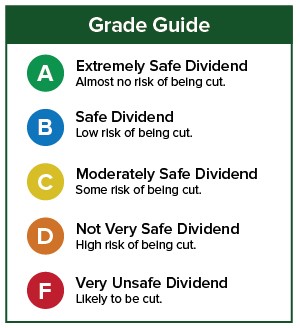Every so often, a Wealthy Retirement reader asks me to analyze a stock I’m unfamiliar with.
It’s one of the reasons I take suggestions on which stocks to cover in my weekly Safety Net column.
This week, based on one of those suggestions, I’m looking at the SafetyNet Pro rating of GasLog Partners (NYSE: GLOP), a Monaco-based partnership that operates natural gas carriers.
[ad#Google Adsense 336×280-IA]Income investors are attracted to it because of its 8.8% yield.
Last year, GasLog generated $84 million in distributable cash flow while paying investors $73.4 million in distributions.
That equals a payout ratio of 87%.
Payout ratio is the percentage of earnings or cash flow paid out in dividends or distributions.
A ratio that’s more than 100% means the company isn’t generating enough money from operating its business to afford its dividend.
A ratio below 100% means the dividend is completely funded by the business.
In 2017, with the higher distribution, the company will likely pay about $76.2 million in distributions. Distributable cash flow is estimated to be $96.4 million.
So even though the company will pay unitholders more in distributions, the payout ratio will fall to 79%.
GasLog Partners has been around since only 2014, so it doesn’t have much of a distribution track record. Though, if it raises its distribution as planned, it’ll be the fifth time in less than three years.
 When it comes to dividend safety, I’m always a little wary of companies that haven’t been around long.
When it comes to dividend safety, I’m always a little wary of companies that haven’t been around long.
 It’s easy to raise the distribution when everything is fine, but we really learn about a company’s commitment to its dividend when things hit a rough patch.
It’s easy to raise the distribution when everything is fine, but we really learn about a company’s commitment to its dividend when things hit a rough patch.
I should note that GasLog Partners did endure a difficult period in the energy market, when natural gas prices crashed in 2014 and 2015. However, its distribution was maintained without a cut.
In its short history, GasLog has shown its ability to grow its cash flow and distribution. The company generates plenty of cash flow to continue to fund its distribution.
The only negative is that it doesn’t have much history to rely on.
Dividend Safety Rating: B
Good investing,
Marc
[ad#IPM-article]
Source: Wealthy Retirement


